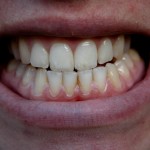
This new Cochrane systematic review finds that motivational interviewing has no effect on reducing alcohol-related problems or risky behaviours such as drunk driving in young people.
[read the full story...]
This new Cochrane systematic review finds that motivational interviewing has no effect on reducing alcohol-related problems or risky behaviours such as drunk driving in young people.
[read the full story...]
This study explores the prevalence of psychiatric disorder and comorbidity among a UK sample of young people with experience of homelessness. It finds an extremely high prevalence of mental illness, combined with low levels of mental health service use.
[read the full story...]
There is considerable evidence that people with learning disabilities in residential settings are prescribed anti-psychotic medication to help reduce behaviours that challenge the service. However, there can be significant side effects from these powerful drugs and for some people these can be as debilitating as the impact of the behaviours. In some instances the effects [read the full story…]

The National Institute for Health and Care Excellence (NICE) have recently searched for any new evidence that may be relevant to a public health guideline published in 2007; ‘Interventions to reduce substance misuse among vulnerable young people’. In this blog I summarise the new evidence that has emerged and highlight whether or not it is likely [read the full story…]

Here at the National Elf Service, we are committed to highlighting and discussing evidence based practice. Our usual approach is to focus posts around a piece of recently published research, but this post is different, responding as it is to the tragic events of last year that led to Connor Sparrowhawk’s death. Just over a [read the full story…]

Sexuality is a core aspect of human experience, but for many people with learning disabilities, there continues to be considerable confusion about sexuality and significant gaps in their knowledge Opportunities for people to participate in relationships and education about sexuality can be affected by attitudes and perceptions of family carers, support workers and professional staff. [read the full story…]

The link between external influences such as family and neighbourhood experiences and young people’s mental health outcomes has been extensively commented on in the literature. While it is more common for studies to focus on the individual or family level, looking at things from a wider perspective is interesting especially from a public mental health [read the full story…]

Background The process of preparing for adulthood, whilst opening up a range of opportunities, can also be a worrying and difficult time. In the case of young people with learning disabilities who have been supported by children’s services, there is the additional issue of dealing with the transition of support from those services to services [read the full story…]

Dental fluorosis is characterised by bilateral, diffuse, thin and horizontal white striations and stained plaque areas, with pitting and discolouration of the enamel in more severe case. It is caused by excess fluoride ingestion during tooth development and can have an impact on quality of life. The aim of this study was to evaluate the [read the full story…]

Clinicians and mental health researchers have long recognised that there is a link between traumatic experiences in childhood and symptoms of psychosis or non-clinical psychotic experiences presenting in adolescence or adulthood. One type of traumatic experience is the experience of abuse, whether physical, emotional or social in nature. When it comes to bullying, any or [read the full story…]